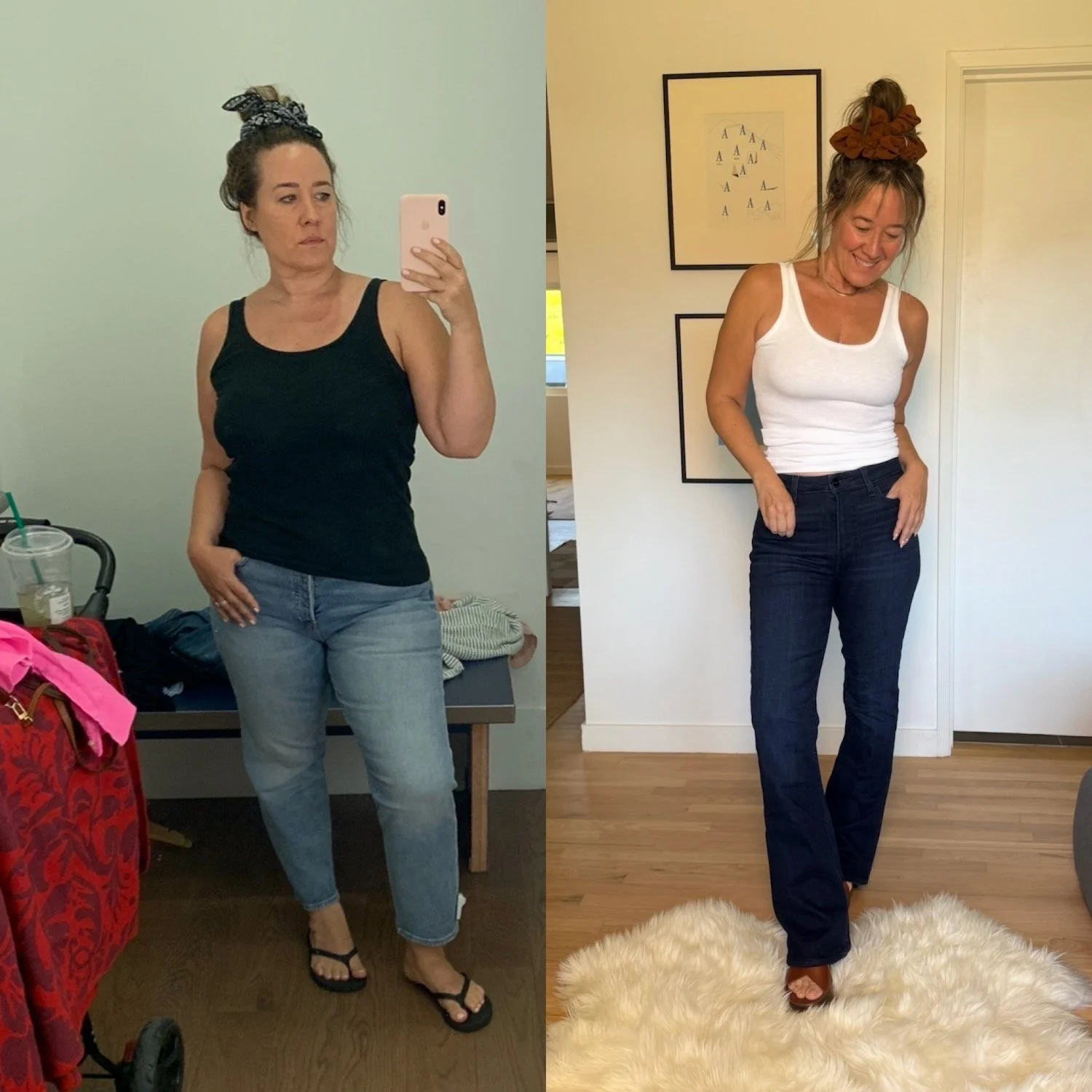Did You Grow Up With Emotionally Unavailable Parents?
And what does that mean for your life today?
by The Candidly Team
We’ve all felt ignored by our parents at one time or another. Dismissed. Overlooked. Deprioritized.
Good parenting isn’t about the giving of constant attention. According to research from developmental psychologist Edward Tronick, parents of securely attached kids are really only attuned or in sync with their infants about 30% of the time. Another study from infant attachment researcher Susan S. Woodhouse found that “caregivers need only ‘get it right’ 50 percent of the time when responding to babies' need for attachment to have a positive impact on a baby.”
The point is, there is such thing as “good enough” parenting. The kind of parenting where our basic needs are met enough of the time to arm us with an ongoing sense of inner security.
However, it’s estimated that about 40% of us didn’t experience that.
Our needs were not met enough of the time to form a secure attachment with our parent. And while this isn’t an article about blaming or shaming those parents, it is about unpacking what that lack of security might be doing to our lives today.
And to help us make sense of this, we spoke to psychologist and author Dr. Jody Carrington.
1) What does it mean for a parent to be "emotionally available?”
“Words like attentive, attuned, aware, and connected are often synonymous with having a parent who is ‘emotionally available,” said Carrington. “It doesn't mean that the parent (or caregiver) is available to attend to their child's needs all the time, or at every whim; however, it does mean that there is an awareness by the child that the parent is available, particularly in times of distress or when support is needed, at some level of predictability.”
Interpersonal Neurobiologist, Dr. Daniel Siegel famously described four elements a child needs to experience a secure attachment, (aptly named the 4 S’s of Secure Attachment). These are:
Safe: The child must not feel frightened by their parent or feel like their parent is frightened of them. They should also feel settled in their environment and like they can come to the parent as a protective base.
Seen: The child feels that the parent wants to understand them, both in terms of what they’re experiencing in their inner world and who they are as people.
Soothed: The child feels like they can go to the parent when upset and get comfort. The parent should be able to be calm, warm, compassionate, affectionate in these exchanges.
Secure: This desribes a level of trust the child is able to feel in the parent based on them providing the other 3 S’s. The child then learns to cultivate that same trust and security within themselves. Their parent has been a model of security for them that they can now replicate.
Again, a parent doesn’t need to get all this right 100% of the time, but when you can solidly say that you felt these 4 S’s from your parent on a consistent, predictable basis, you likely had your needs met enough of the time to feel secure.
2) What gets in the way of a parent having the capacity to be there for their children in this way?
Attachment research has shown that the attachment pattern we had with our own parents is the biggest predictor of the attachment pattern we'll have with our child.
“The most important truth is this: you can't give away something you've never received. In order to provide emotional regulation to another, you have had to have someone show that to you,” said Carrington. “So many people who have survived sometimes multiple generations of abuse, neglect, or trauma, will struggle to give that sense of safety and security to their children.”
3) What are some signs that we experienced a parent who was emotionally unavailable?
“If your repeated experience is that people are not safe, it becomes very difficult to develop healthy, connected relationships,” said Carrington. We all have our own adaptations to not feeling this kind of presence in our lives.
“For some of us who have had very few people ever be emotionally attuned or available, this can sometimes result in people feeling as though they have to ‘turn it up’ to get their needs met, either by becoming big, loud, ‘needy’ in their actions and their communication styles,” said Carrington. “Others can become very introverted and self-sufficient. In both cases, trust in another's ability to meet your needs becomes compromised and understandably can pose difficulties in developing secure relationships into adulthood.”
If your parents were emotionally absent, you might go on to experience one of three patterns of adult insecure attachment.
1. Preoccupied Attachment
When a parent was only intermittently available, sometimes meeting your needs and other times either seeming absent or acting in a way that was intrusive or emotionally hungry, you might grow up to have a deep feeling of insecurity and fear of rejection in your adult relationships.
You might be more self-critical and therefore, notice yourself continually seeking approval and reassurance from others. You may have trouble trusting other people’s feelings toward you, which leads you to act jealous, clingy, or emotionally desperate.
None of this is something to beat yourself up over. You’ve just been taught to make sure you get your needs met yourself, because you were never sure if and when that would happen for you as a kid.
2. Dismissive-Avoidant Attachment
If you didn’t have someone who was emotionally available to you as a kid and who didn’t treat your emotional needs as significant, you might grow up to have an avoidant attachment style. Your tendency will likely be to suppress your feelings or treat them as unimportant. You may also struggle to deal with the emotional needs of others.
If you have a dismissive-avoidant attachment you might have the tendency to be more pseudoindependent. Your partner might complain that you won’t let them in. Instead, you prefer to take care of yourself and may even feel compelled to distance yourself from others, particularly when things are emotionally charged. Others might describe you as an island, more inward or removed.
Fearful-Avoidant Attachment
When you experienced extreme trauma or situations where your parents were actually frightening to or frightened of you, you may never have been able to form an organized strategy to get your needs met. This can lead you to feel somewhat detached from yourself and struggle with both emotional closeness and emotional distance as an adult. It can be hard to feel comfortable in a relationship, because so many intense, repressed emotions can get triggered.
4) What can we do as adults if we’re struggling with the aftermath of growing up with an emotionally unavailable parent?
“Many of us, thankfully, have corrective experiences when we grow, even if our parents weren't able or capable of providing a secure attachment - a semi-predictable response to needs for connection and safety. We can get that through other relationships - grandparents, teachers, best friend's moms,” said Carrington. “But if all those have been largely absent, it becomes difficult to give that away to the next generation - not because you don't want to, but because there's no script on HOW to.”
Attachment research has suggested that the best way to break the generational patterns of our past is to make sense of and feel the full pain around what happened to us. One way to do this is by creating what Siegel calls a “coherent narrative,” which we dove deep into HERE. The point of this narrative is not to get stuck blaming our parents for eternity, but to make the unconscious things conscious, so we we’re no longer living at the whim of our emotional triggers in our lives today
“The greatest lesson we learn from attentive parents is that people, and relationships with people can be safe. When people who matter the most to us haven't been able to demonstrate that truth, we tend to feel unsafe in our own bodies - a need to be "on guard’ just in case others won't be available,” said Carrington. “Starting to become aware of your own feelings - and being able to regulate your own body can become so incredibly life-changing. Slowing down and noticing when you feel safe with others, dropping your shoulders, relaxing your jaw, on purpose when you know you are in a safe place, can be helpful in allowing your body to begin to trust that, too”
This article is for informational purposes only. It is not intended to be used in place of professional advice, medical treatment, or professional care in any way. This article is not intended to be and should not be a substitute for professional care, advice or treatment. Please consult with your physician or healthcare provider before changing any health regimen. This article is not intended to diagnose, treat, or prevent disease of any kind. Read our Terms & Conditions and Privacy Policy.









